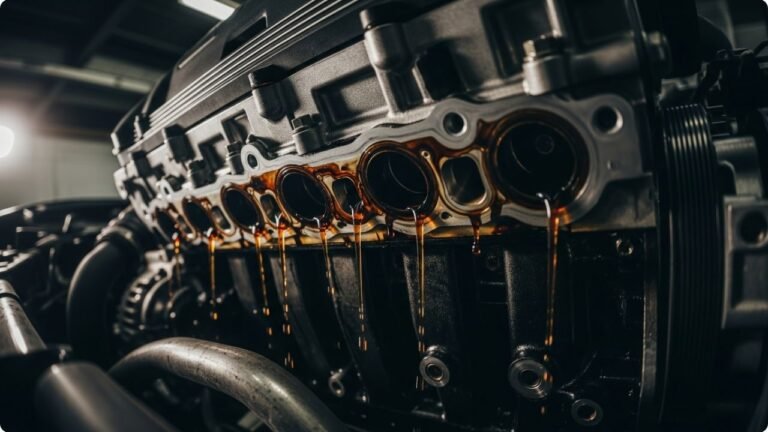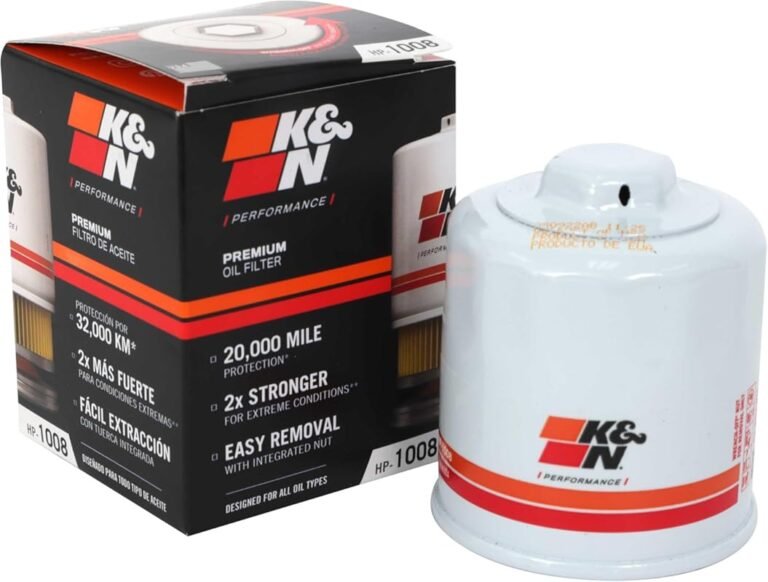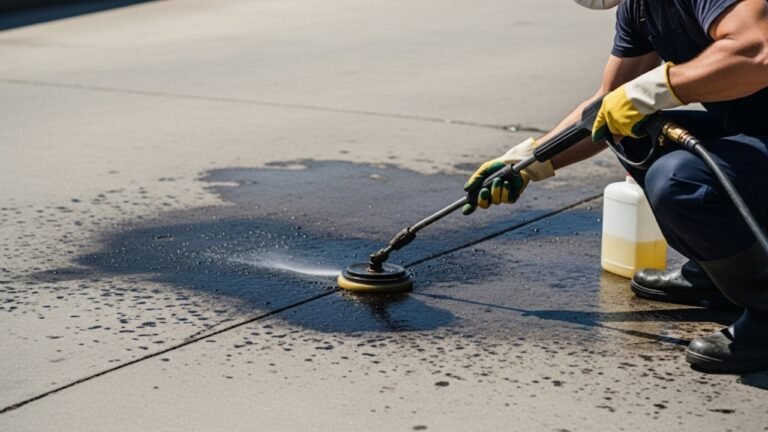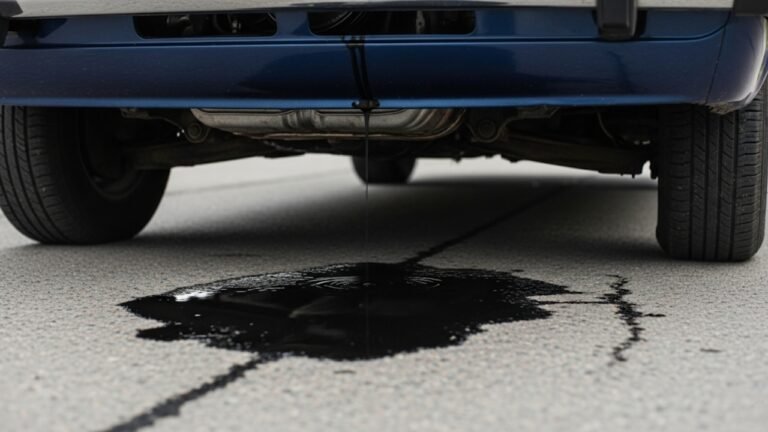Why Does My Car Have an Oil Leak?
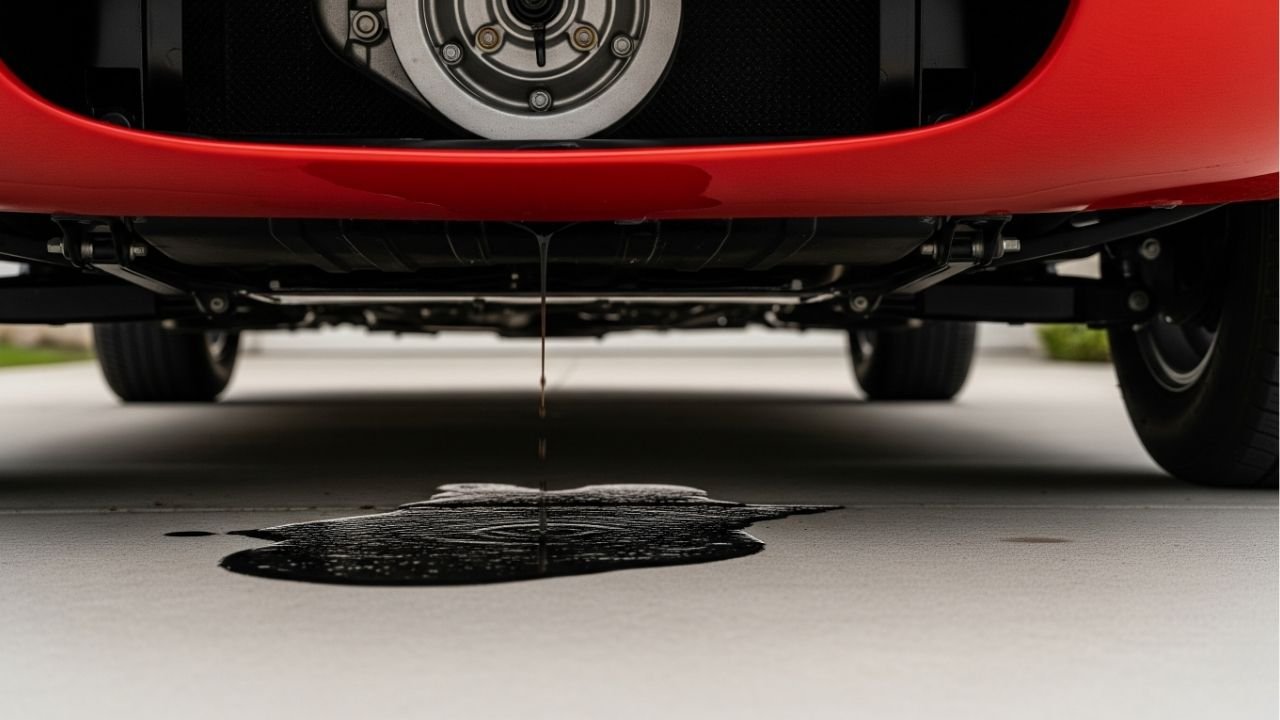
Have you ever stepped outside, coffee in hand, ready to start your day, only to spot that dreaded oil puddle under your car? That moment—when you first ask yourself, “why does my car have an oil leak?”—can feel like the start of a headache you didn’t plan for. You’re not alone. Almost every car owner, at some point, faces this messy little mystery.
An oil leak isn’t just a dirty inconvenience—it’s your car waving a red flag, telling you that something deeper might be wrong. Whether it’s a small drip or a steady stream, ignoring it could lead to engine damage, higher costs, and even safety issues on the road.
In this guide, we’ll take a deep dive into the most common causes of oil leaks, how to spot them, what they mean for your car’s health, and how to fix or prevent them. I’ll share stories, mechanics’ advice, and the practical knowledge I’ve gained from years of dealing with these slippery situations.
So grab your coffee again (maybe keep it away from the oil), and let’s talk through the problem. We’ll keep it simple, friendly, and useful—like talking to your car-savvy cousin on a weekend afternoon.
What Does an Oil Leak Look Like? Recognizing the Signs Early

Here are some key things to watch for:
-
Dark puddles or spots under your car, especially after it’s been parked overnight.
-
A burning oil smell, like scorched toast, when the engine’s hot.
-
Smoke coming from the engine bay, usually near the exhaust area.
-
Low oil levels despite regular top-ups.
-
Warning lights on your dashboard (like the oil can symbol).
If you’re noticing any of these, don’t brush them off. An oil leak doesn’t fix itself, and time only makes it worse. Even a tiny leak can lead to major engine wear if the oil level drops too low.
Sometimes I tell friends: your car is like a body. Oil is its blood. If it’s leaking blood, it needs care—and not next month.
The Most Common Causes of Oil Leaks in Cars
Let’s cut to the chase. Why does my car have an oil leak? It’s a fair question with a handful of common answers. While it depends on the make and age of your car, some culprits show up more than others.
Here’s a breakdown of what might be going wrong under the hood:
| Cause | What It Is | Why It Happens |
|---|---|---|
| Worn-out valve cover gasket | A seal on top of the engine | Heat and age cause it to crack |
| Oil pan damage | The metal pan at the engine’s bottom | Potholes, road debris, or bad sealing |
| Loose oil filter | The part that cleans oil as it circulates | Improper installation or wear |
| Oil drain plug leak | The bolt you remove during an oil change | Improper tightening or worn washer |
| Crankshaft or camshaft seals | Seals where shafts leave the engine block | Age, friction, and high mileage |
| PCV system issues | Positive Crankcase Ventilation—controls pressure | Blockage can force oil out elsewhere |
In most cases, gaskets and seals are to blame. They’re made from rubber or silicone and take a beating every time your engine heats up and cools down. Over time, they harden, shrink, or crack—just like old rubber bands.
From experience, I’ve seen older vehicles leak from the valve cover gasket more than anything else. You might pop the hood and see oil pooled around the edges of the engine. It’s messy, but fixable.
How Weather and Driving Habits Affect Leaks
You might not realize it, but your lifestyle plays a part too. Hot weather makes engine oil thinner, so it can escape more easily from weak spots. Cold weather can make seals brittle and prone to cracking.
Even how you drive can influence the answer to why does my car have an oil leak. Hard acceleration, towing heavy loads, or lots of stop-and-go traffic all raise engine temperatures. That heat strains your gaskets and seals.
For example, I had a friend in Phoenix whose car leaked oil every summer. The mechanic said the Arizona heat turned his valve cover gasket into brittle plastic. Replacing it helped, but switching to high-mileage oil with seal conditioners made a big difference too.
So if you live somewhere like Dhaka or Houston—places with hot traffic-clogged streets—you’re probably more prone to leaks than someone in a cooler rural town.
Is It Safe to Drive With an Oil Leak?
This is one of the most important questions people ask. The honest answer? It depends.
If the leak is minor—a few drops a day—you might be able to drive for a short while. But if you’re seeing pools of oil, or if your oil warning light is on, then no, it’s not safe.
Here’s why:
-
Low oil levels lead to friction and overheating, which can destroy the engine.
-
Oil dripping onto hot exhaust parts can catch fire.
-
Leaking oil on the road is dangerous for other drivers and environmentally harmful.
I once made the mistake of driving too far on a leaking oil pan. What started as a $50 gasket job turned into a $1,500 engine repair. Trust me—pull over, check the oil, and call your mechanic.
Even if the car seems fine now, that slow leak could be chipping away at your engine’s life like rust on metal.
DIY Inspection: Can You Find the Leak Yourself?
If you’re even a little handy, you might be able to find the leak yourself. It’s not always easy, but a few basic steps can save you time and money at the shop.
Here’s how to do it:
-
Park on clean cardboard overnight. Check for oil spots in the morning.
-
Check the oil dipstick. If it’s low, top it off.
-
Inspect around the valve cover gasket for fresh oil.
-
Shine a flashlight under the engine and look for shiny wet spots.
-
Smell for burning oil after driving. That could mean oil is leaking onto hot metal.
If you’re still unsure, a UV oil dye kit costs under $20 and works like a charm. Just pour it into your oil and use a UV light to see where it leaks from.
Of course, don’t go poking near a hot engine. If you’re not comfortable or the engine is too dirty, it’s okay to call in a pro. Some shops even offer free inspections—especially if you plan to get the repair done there.
Preventing Oil Leaks Before They Start
Let’s be honest—fixing an oil leak is one thing, but not having one at all? That’s the goal. The best way to deal with a leak is to never let it start.
Here are a few habits that help:
-
Change your oil on time, using the correct type.
-
Use high-mileage oil if your car has over 100,000 km.
-
Ask your mechanic to check gaskets and seals during routine maintenance.
-
Don’t ignore the small drips—they grow.
-
Avoid harsh acceleration and overheating the engine.
Every time I bring my car in for service, I ask them to give the engine a “leak check.” It takes just a minute, but has saved me from bigger problems more than once.
Think of it like checking your blood pressure—catch the signs early, and you stay out of trouble.
How Much Does It Cost to Fix an Oil Leak?
If you’re wondering why does my car have an oil leak, the next thought is probably: “How much is this going to cost me?” Honestly, it can vary a lot depending on the cause and the make of your car.
Here’s a rough breakdown of typical repair costs:
| Repair Type | Estimated Cost (USD) |
|---|---|
| Oil drain plug replacement | $20 – $50 |
| Valve cover gasket replacement | $100 – $350 |
| Oil pan gasket replacement | $200 – $600 |
| Rear main seal replacement | $500 – $1,200+ |
| Full diagnostic test | $80 – $150 |
The valve cover gasket is usually the most affordable fix. But if the leak comes from something deeper—like the rear main seal, which requires removing the transmission—it gets pricey fast.
That’s why early detection is your wallet’s best friend. If you catch it before the oil level drops too low, you might only spend a small amount on parts and labor. Letting it go could turn a $100 repair into a $1,000 engine overhaul.
Temporary Fixes: Can You Patch It Yourself?
Sometimes, we just need to buy time before getting a full repair. I get it—life happens. In some cases, a temporary oil leak fix can help you stay on the road without causing damage.
Here are a few safe temporary measures:
-
Use stop-leak additives: These products swell seals slightly to reduce leaks. They’re not permanent, but can slow small leaks.
-
Tighten loose components: A loose oil filter or drain plug can cause leaks that are easy to fix.
-
Add high-mileage oil: These oils are thicker and contain seal conditioners that help older engines.
However, remember: these are band-aids, not cures. You should never rely on them for more than a few weeks. One time, I used a stop-leak product during a road trip. It worked long enough to get me home—but when I visited my mechanic, he warned that too much of it can clog oil passages.
Use temporary fixes wisely, and always plan for a real repair soon.
Common Myths About Oil Leaks
People love to give car advice, but some of it is just plain wrong. Let’s bust a few myths about why does my car have an oil leak before they lead you down the wrong road.
Myth 1: A small leak is nothing to worry about.
Truth: Even small leaks can drop your oil level enough to damage the engine.
Myth 2: Synthetic oil causes more leaks.
Truth: Synthetic oil can reveal leaks by cleaning out sludge that was hiding them—but it doesn’t cause new ones.
Myth 3: Just add more oil and ignore the leak.
Truth: Adding oil without fixing the leak is like filling a bucket with a hole. You’ll waste oil and risk engine damage.
Myth 4: You need to overhaul the whole engine.
Truth: Most leaks come from a single gasket or seal. Major repairs are rare and usually avoidable.
Sticking to facts, not garage rumors, will save you time, money, and stress.
When Should You See a Mechanic?
Here’s the rule: if you can’t identify the leak or can’t stop it, see a mechanic. There’s no shame in asking for help. Modern engines are complex, and oil can travel across parts, making it hard to find the real source.
Go to a mechanic if:
-
You see more than a few drops under the car daily.
-
There’s smoke, burning smells, or engine performance issues.
-
You’ve tried tightening the drain plug or filter and the leak remains.
-
Your dashboard oil light comes on.
One of the best things you can do is take a photo of the oil puddle, your dipstick reading, and the engine area. Share that with your mechanic. It’ll help them diagnose the issue faster and more accurately.
Trust your gut. If the leak seems worse than before or just doesn’t feel right, it’s probably time to call in the pros.
FAQs: Why Does My Car Have an Oil Leak?
1. Can an oil leak fix itself?
No. Oil leaks do not seal themselves. Ignoring them will only make the problem worse over time.
2. Is it okay to drive a short distance with a leak?
If the leak is small and your oil level is normal, short drives might be okay—but don’t delay repairs.
3. How often should I check for leaks?
Check under your car weekly, especially if it’s an older vehicle or just had an oil change.
4. Do older cars leak oil more often?
Yes. Older engines have more worn gaskets and seals, making leaks more likely.
5. Can an oil leak cause my engine to overheat?
Yes. Low oil means more friction and less heat regulation, which leads to overheating.
6. Can a dirty engine cause oil leaks?
Indirectly. A buildup of dirt and grime can hide leaks or lead to gasket wear over time.
7. Is oil leaking on the ground worse than oil burning off inside the engine?
Both are bad, but burning oil may be harder to detect and could mean internal engine issues.
8. How long does it take to fix an oil leak?
Most minor leaks can be fixed in 1–3 hours. Major leaks, like rear main seals, can take a full day or more.
Final Thoughts: Fix the Leak, Save the Engine
At the end of the day, if you’re asking why does my car have an oil leak, you’re already on the right track. You’re paying attention. And that’s half the battle.
Oil leaks are frustrating—but fixable. Don’t let fear or confusion keep you from acting. The sooner you deal with it, the easier and cheaper the solution usually is.
Here’s a quick recap to drive home the key points:
-
Look for signs: puddles, smells, smoke, or dashboard lights.
-
Diagnose early: use simple checks or take it to a pro.
-
Act fast: small leaks can lead to big engine problems.
-
Fix the root cause: don’t just mask it with additives.
-
Maintain regularly: clean oil, good driving habits, and checkups matter.
Your car is more than metal and parts—it’s your daily companion. When it leaks oil, it’s calling for help. Give it the attention it deserves, and it’ll take care of you for miles to come.

